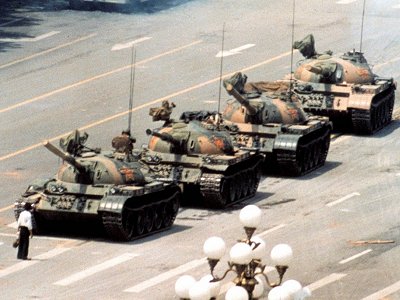
THE JUNE 4TH INCIDENT
Public rituals surrounding anniversaries make profound statements about the value of human beings, their absence even more so.
In 2019, two events that are burnt on human imagination will be thirty years old and the profoundly different way they are officially remembered tells us everything we need to know about the importance of public memory and lament. On April 15, 1989, ninety-six Liverpool fans were crushed to death in the Hillsborough disaster. The club has marked the anniversary assiduously since, giving dignity and respect to the dead and the bereaved. Just as significantly, it has given space for the protest against the way fans were treated by the police on the day and by some quarters of the media afterwards. Throughout a long drawn out ordeal, people have been freely able to lament and to demonstrate.
Less than two months after Hillsborough, the Chinese democracy movement, which was gathering force as those events unfolded in Sheffield, met its brutal and sickening end in the Tiananmen Square massacre on June 4. In many ways it was the precursor to the largely peaceful revolutions in Eastern Europe that 1989 ended so euphorically with. While the countries of Eastern Europe plot their way with varying degrees of success today, China is still living with the effects of that fateful day – not that its people are allowed to articulate this. Known blandly as the ‘June 4th incident’, China’s censors ban words like ‘candle’, ‘that year’ and ‘special day’ from search engines around each anniversary. Even combinations of numbers that might refer to June 4, like 6-4 or 63+1 or 35 (shorthand for May 35th) are blocked. The authorities know the value of memory, even as they deny it public expression.
Crude attempts by the Chinese Communist Party to control free debate have proven more successful than we would like to think, especially among the generation that has no memory of 1989. Social engineering like this is exquisitely satirised in Chan Koonchung’s novel The Fat Years (Black Swan 2012), where a calendar month goes missing from China’s recent history and no-one can seem to remember why.
Public rituals surrounding anniversaries make profound statements about the value of human beings. When death is commemorated, we preserve the sanctity of human life and the dignity of personhood. Without this, our relationships become twisted and devalued. The suppression of grief and lament in Chinese society around Tiananmen is a function of the callous disregard the State often shows those who publicly disagree with it and perpetuates the insignificance of the individual compared to the State.
Jewish religious thinking has always created space for people to commemorate the suffering of people and the goodness of God, most clearly in the Passover meal. Jesus’ re-imagining of this feast as his own sacrifice remains at the heart of authentic Christian worship. His death is unique in its capacity to connect God and the human race and alters the course of the cosmos, so great is its effect. It also, subversively, affirms the value of every human death, especially those who perish violently and whose names are forgotten, like those who were crucified either side of Jesus. No human being dies nameless and unknown before God. Our memorialising of Jesus’ death is the most life-affirming act, preserving our dignity and enshrining a hope for what is to come that cannot be extinguished.
We need memorials which reflect the love God has for us and the hope God he has set before us. It is no co-incidence that those who deny June 4, 1989 also deny free observance of Jesus’ own death for others.
POPULAR ARTICLES

Obama's Covert Wars
The use of drones is going to change warfare out of all recognition in the next decades.

Through A Glass Starkly
Images of traumatic incidents caught on mobile phone can be put to remarkable effect.

What Are British Values?
Is there a British identity and if so, what has shaped the values and institutions that form it?


